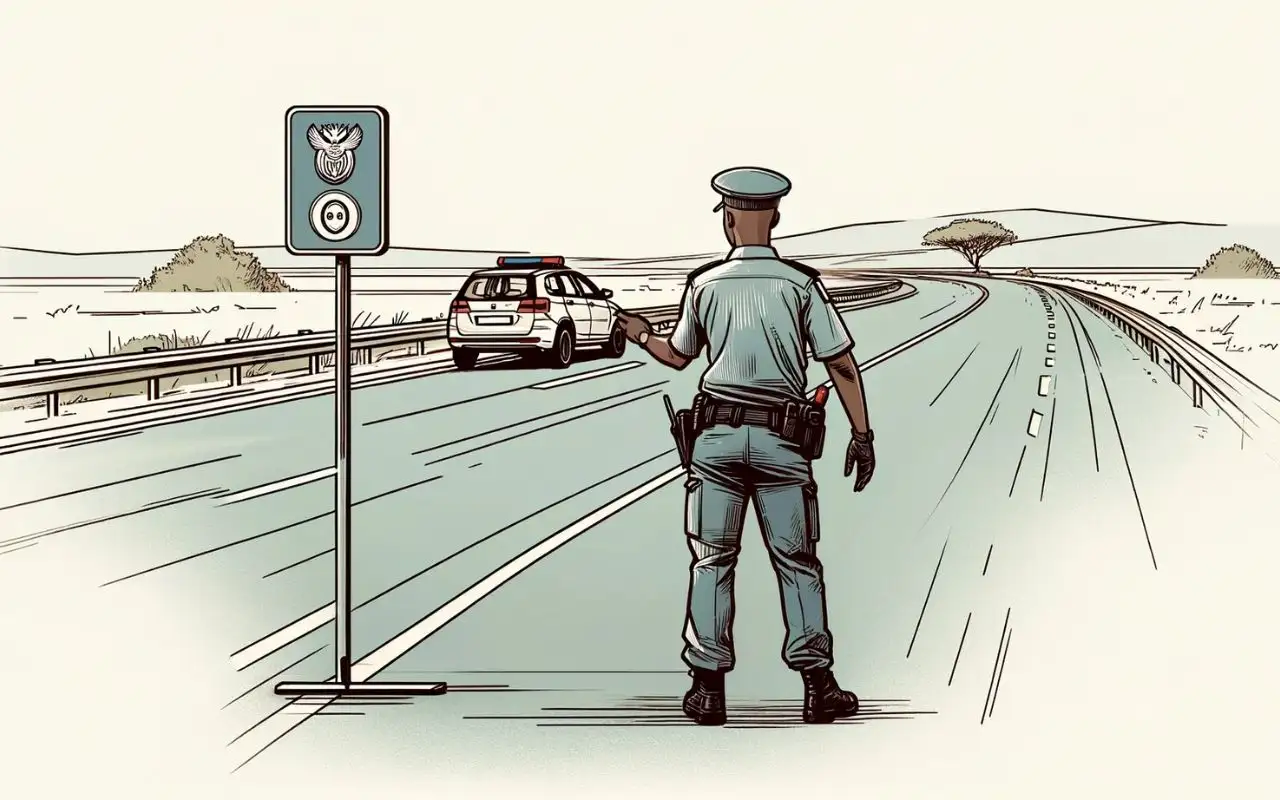A traffic cop is a law enforcement officer responsible for regulating and maintaining traffic flow.
Clad in distinctive uniforms, they manage intersections, enforce traffic laws, and ensure public safety on roads.
Armed with signals and sometimes equipped with handheld devices, traffic cops direct vehicles, pedestrians, and cyclists, preventing chaos and potential accidents.
Their duties extend to issuing citations for traffic violations and assisting in emergencies.
Through a combination of training and experience, traffic cops play a crucial role in maintaining order and safeguarding the well-being of the community by mitigating the risks associated with vehicular movement.
How Much Does A Traffic Cop Earn in South Africa
Traffic officers in South Africa receive a monthly salary ranging from R8,550 to R29,600.
The compensation package may include bonuses and incentives, with housing allowances, rent subsidies, transportation, and medical insurance becoming part of the salary as officers progress in their careers.
Approximately 32% of traffic officers receive bonuses and increments. Salary distribution shows that 25% of entry-level professionals earn less than R14,000, while 75% of mid-career professionals earn no more than R20,000.
Various factors influence a traffic cop’s salary, such as experience, education level, gender, and the city of employment. Experience-related salary increases range from 34% for 2-5 years to 8% for over 20 years.
Education significantly impacts salary, with diploma holders earning R11,100, bachelor’s degree holders earning R17,400, and master’s degree holders earning R29,100 per month.
Factors Affecting Traffic Cops Salary in South Africa
Qualification and Experience
Higher qualifications (diploma, degree) and extensive experience lead to promotions and higher salary grades. Entry-level officers with basic training earn less.
Location
Metropolitan areas like Johannesburg or Cape Town offer higher salaries due to the cost of living and workload compared to smaller towns.
Employer
Salaries can vary between national, provincial, and municipal traffic departments. National officers often earn more due to broader responsibilities.
Performance
Exceptional performance through exceeding ticket quotas, proactive community engagement, or commendations can lead to merit-based salary increases.
Specialization
Officers trained in specialized units like forensic investigation, K9 teams, or VIP protection typically command higher salaries due to the required skills and risks.
Union Membership
Being part of a recognized union offers collective bargaining power for better salaries and benefits, potentially impacting individual earnings.
Overtime
Working overtime, especially during peak hours or holidays, can significantly boost income, but can be physically and mentally demanding.
Shift Allowances
Night shifts, weekend shifts, and public holiday duty often come with allowances on top of base salary, potentially increasing overall income.
Educational Advancement
Pursuing further education while employed can open doors to promotions, specialized units, and higher salary brackets.
Government Pay Adjustments
Periodic salary adjustments by the government based on inflation and economic factors can impact overall earnings for all traffic officers.
Education and Qualifications of A Traffic Cop in South Africa
Minimum Requirement
A Grade 12 certificate (Matric) or equivalent is the absolute minimum. No specific subjects are mandated, but English language proficiency is crucial.
Traffic College Training
Successful applicants enter a recognized traffic college for intensive theoretical and practical training. This lasts roughly 6 months and covers road traffic law, enforcement procedures, first aid, self-defence, and more.
National Certificate
Upon completing traffic college, officers receive a National Certificate: Road Traffic Enforcement (NQF Level 5). This qualification is essential for employment and career progression.
Code B Driving License
Holding a valid Code B driving license (manual transmission) is mandatory. Additional endorsements for motorcycles or heavy vehicles can enhance career prospects.
Medical Fitness
A medical certificate certifying the ability to perform physically demanding tasks, including extended periods outdoors and potential altercations, is required.
Clean Criminal Record
Applicants must undergo a criminal background check and possess a clean record for employment consideration.
Physical Fitness
Traffic officers undergo physical fitness tests during training and periodically thereafter to ensure they can meet the demands of the job.
Computer Literacy
Basic computer literacy is increasingly important for tasks like generating reports, accessing databases, and using digital ticketing systems.
Communication Skills
Strong communication skills, both written and verbal, are vital for interacting with the public, explaining traffic violations, and providing directions.
Continuous Learning
Traffic officers are expected to stay updated on changes in traffic laws, regulations, and best practices through ongoing training and development programs.

